Local conversations could help communities make sense of the impact of covid-19 as it continues to unfold.
Local conversations could help communities make sense of the impact of Covid-19 as it continues to unfold, could unlock local learning, knowledge and assets, and support what will inevitably be an uncomfortable transition to a post-Covid reality.
Communities need to heal
We believe there needs to be a collective sense-making as part of a community healing and transition process; a post-covid version of a truth and reconciliation or conflict transformation process.
We are not advocating a truth and reconciliation process in the traditional sense of the term, in which a body is established and charged with revealing, understanding and reconciling past wrong-doing.
As Onur Bakinur notes, such an endeavor is inherently political, since it requires those designing it to
“constantly make choices when they define such basic objectives as truth, reconciliation, justice, memory, reparation, and recognition, and decide how these objectives should be met and whose needs should be served”.
Yet we feel it remains appropriate language to use. We are not defining 'truth' in the sense of wrongdoing (the formal enquiry will fulfill this function), but truth in the sense of people's lived experiences. We believe they should be amplified and heard, from all corners of the country and sections of society. We do not define reconciliation exclusively in the sense of establishing consensus on the past, but also reconciliation around a future vision for our places and communities and for society as a whole.
How can we transition through and out of a period of significant disruption and change - in any endeavour or walk of life - without engaging with the pain that results from any period of change? We all need support mechanisms through which we can make peace with the past and find ways to carry its scars with us into the future. To not acknowledge and give voice to the pain, loss, solidarity and transformative change many communities, individuals, businesses and professions experienced, and are experiencing would present a massive failure and missed opportunity.
We argue that a process that enables this to happen, through myriad community conversations, could provide the lifeblood for better policy and practice in the future and - more crucially - inform the inevitable public inquiries to be held.
Inverting the inevitable inquiry
To what extent will the true diversity of people’s experience of Covid-19 inform the inquiries, reviews and inquests that will inevitably be held into Covid19 crisis and the impact it has had on communities up and down the country?
Despite the appeals of lawyers, politicians and bereaved families, the UK government continues to obfuscate around the details of a public inquiry on its handling of the Covid-19 crisis. Last month the RSA joined the chorus of voices, proposing a citizens’ inquiry into health and social care during the pandemic.
The RSA has additionally published a 'how to' guide for citizens' assemblies and has launched a 'Future change framework' to support community conversations into the impact of Covid-19. The UK Government's Public Administration and Constitutional Affairs Committeeis currently holding an inquiry into the Coronavirus Act 2020.
While traditional inquiries focus on institutions and make policy recommendations, they can often miss the wider systemic impact of crises and the diversity of survivors’ lived experiences. A well-resourced public inquiry, or set of public enquiries, with the emphasis on the public - not in public - will be crucial if we are to learn the lessons from the pandemic.
But is this enough?
Reconnecting with cultural and spiritual traditions
We suggest going further than this, advocating for hundreds of local community conversations designed in such a way that fosters collective sensemaking based on reconciliation, healing and growth. We feel this is critical to the long-term health of our communities and the well-being of their residents. The conversations will need to be sensitively held and based on common, agreed principles. Such a process is about creating the space for people to come together and to share their stories, experiences and perspectives in an effort to surface truthfulness and knowing. This enables not only individual transformation through self-awareness gained through reflective learning, but also community wisdom and the information with which to make decisions.
This is not a new practice, for it is as old as humanity itself. Yet in our material and deterministic world, and in the West in particular, we have tended to become disconnected from our deep roots of nature, belonging and community as we rush through our lives being busy.
As John P Milton recognises, “we have stepped out of the natural world to create the artificially-built environment” and in so doing have separated ourselves from nature in our own minds. We see nature as something to rise above, to control and dominate, to colonise, just as we expect to dominate and extinguish the microscopic Coronavirus, even though it's also a part of nature, evolving and trying to cling to life just as we are. We have lost the sense that we should live grounded in nature and in harmony with it, because ultimately we are an integral part of the natural world. Covid-19 is teaching us this lesson.
Positive change can come from a place of pain
Creating positive change out of this crisis will require difficult conversations, which will in turn surface underlying conflicts and tensions. One interesting effect of Covid-19 is that it has ‘lowered the water level’, for a period of time making visible some of the structural issues visible to more of the population.
Crucial here is the notion of loss, and the due diligence that should be paid to the changes that are taking place. How do communities remember and commemorate these important collective histories and memories? What is the heritage value of these? Indigenous cultures are much better at this than we are in our homogenised Western cultures, marking the passing of time, events and people through stories, ceremonies and rituals.
Margaret Bruchac elaborates:
“Indigenous knowledges are conveyed formally and informally among kin groups and communities through social encounters, oral traditions, ritual practices, and other activities. One might distinguish "knowledge" as factual data, "belief" as religious concepts, and "tradition" as practice, but these terms are often used imprecisely and interchangeably… Knowledge is often passed on through… oral traditions, song, dance, and ceremony”.
Perhaps we can start to tap back into these traditions that we all once held.
A reconciliatory approach would enable communities to acknowledge the past whilst creatively envisioning the kind of post-Covid future that makes most sense to their community, its needs and aspirations. Work to support this needs to happen at all levels, from experts who have dedicated their lives to studying their fields to communities that are the geography around which people’s lives are focused, through to individuals who have valuable wisdom and insights from their lived experience.
So let’s not simply and mechanistically talk of ‘snapping back’ or ‘building back’, for to go ‘back’ in this sense is regressive. As in any psychological trauma, failure to address it at the time it occurs is to store up problems to be triggered at some point in the future.
Community Conversations
Community conversations could be founded on a constructive approach based on our Future Change Framework, one that helps to highlight what worked in response to Covid19 alongside what didn’t work. This framework supports conversations that offer up ideas for the kind of transformation and recovery process that could be curated. For each quadrant of the model, there is a change process involved.
How can communities rally around and unlock resources and assets in support of the most promising innovations that Covid19 has stimulated? How can they bring more people on board, and generate continuous reflection and learning to ensure these innovations are inclusive and impactful? And for those measures that are only ever temporary - can we learn from them and then let them go, ensuring they don’t become permanent fixtures? For activities that have been stopped or put on pause as a result of the crisis - which actions do communities want to see let go forever and not restarted? And for those things that need restarting - how can we do this in ways that are sensitive to the local community context?
Citizen-designed, citizen-led, citizen voice
Experience teaches us that a traditional inquiry remains expert-focused, bureaucratic and slow, though with the possibility of effecting real change. Involving citizens at the heart of such a change process could be one of the critical ways in which we seek to reshape the social contract between citizens, Government and places. So we’ve been exploring the idea of running a Citizens’ Jury that will consider how best to put the public voice into the public inquiry. The aim of such a design process is to ensure that citizens design the architecture for enabling public and community experiences to be placed at the heart of the inquiry and make recommendations regarding the mechanics of how this could work in practice. There are challenges to think about in designing such a jury, including:
- how to ensure a range of citizens' views can be heard throughout the inquiry, recognising geographical spread, socio-economic background, work status, etc.)
- how to aggregate views and tease out common experiences to generate learning and insight
- how to balance between, for example, thematic topics (health, transport, employment, etc), community (exploring what's different across the UK's regions and communities), sector (those hardest hit by the crisis, such as social care, charities, self-employed), etc
- the extent to which the citizens engagement could help shape the social contract and future ambition of the country post-Covid19
We believe this would be a great focus for the community conversations we are calling for, feeding in to a national dialogue for change as well as being part of a localised healing process.
Seizing opportunities, together
The opportunity to turn in a new direction, befitting not only the 2020s but setting up future generations to be better placed to respond to challenges, is one that is too important to miss. This will require those in leadership positions to share certain kinds of power, which they may feel highly disinclined to do, especially in a time when politicians have been afforded more powers than ever to respond to the pandemic.
Levelling up in this context is no political soundbite nor is it a paternalistic, technocratic exercise in control. It is about letting go of control, for into this space will emerge the best of our communities and people, responding to what is needed in ways that we can’t predict because we don’t know what makes sense in every particular local context. It requires a fundamental rethink and realignment of what it means to live in a society in which the talents of everyone are liberated - in their own lives, in their communities and the places where they live, in groups, workplaces and parks up and down the land.
We already knew the structures and systems of the 1950s were patently ill-equipped to handle the increasingly complex challenges of the 2010s. Coronavirus shines the brightest possible light on these failings. It’s time we saw the need, and opportunity, for systemic change, and worked together to achieve it.
Related articles
-
Thinking about the future differently
Ella Firebrace
To solve today’s challenges, we need to think long-term. How can we do that?
-
Can Government be more effective as the ‘first follower’?
Matthew Taylor Anthony Painter
Instead of hoping for national politicians to solve our hardest problems, we need to ask them for the final pieces of a puzzle we have started to solve together.
-
Moral compasses and citizenship after Covid
Anton Florek
Personal, societal, and global citizenship for more decision-making.
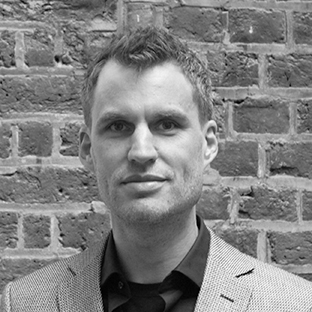
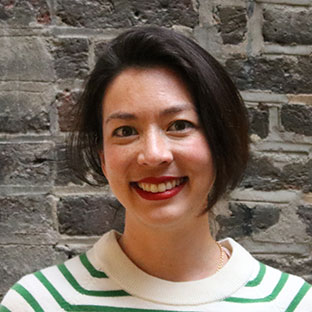
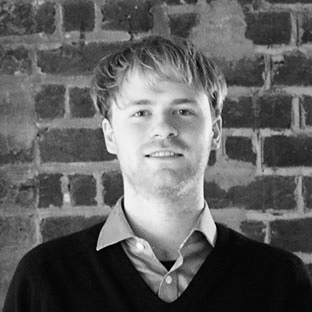
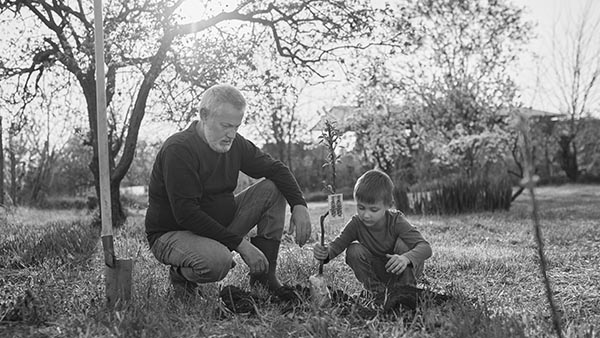

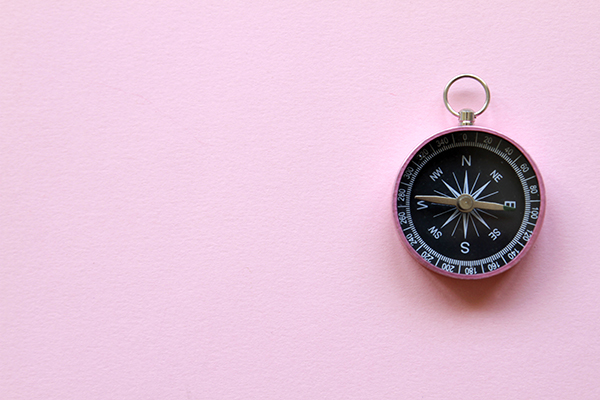
Be the first to write a comment
Comments
Please login to post a comment or reply
Don't have an account? Click here to register.